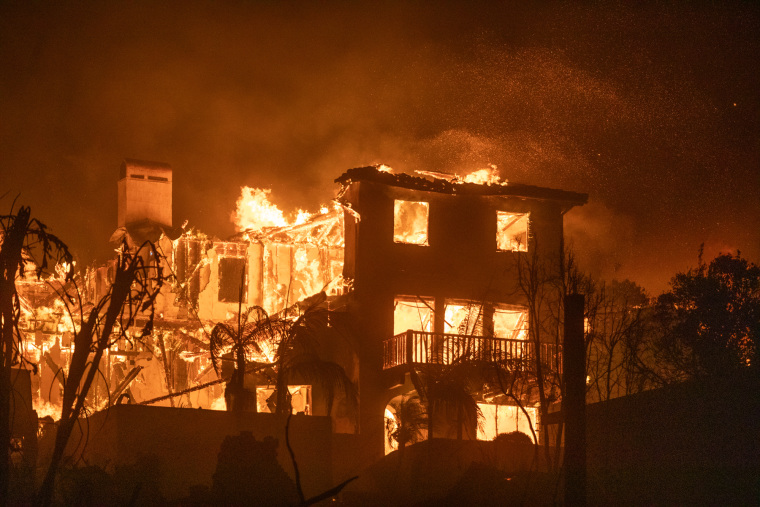
After roaring wildfires consumed parts of the Los Angeles area, tens of thousands of Southern Californians were urged to leave their homes.
About 3,000 acres of the Pacific Palisades, a community situated between the Pacific Ocean and the Santa Monica Mountains, have already been destroyed by the biggest of the wildfires.
With catastrophic wind gusts expected to reach 100 mph throughout Wednesday, the fires are posing a threat to homes. Anthony C. Marrone, the fire chief for Los Angeles County, issued a warning, stating that all inhabitants of the county are at risk due to the National Weather Service’s prediction of a persistent red flag weather event with high winds and low humidity.
Officials suggest that if you have been ordered to evacuate, you should do so right away and not hesitate.
If not, even a tiny bit of planning can have a big impact if circumstances change. And once more, if you believe you are in danger, don’t wait to be told to leave.
What’s the first step to being prepared?
Cal Fire, the California Department of Forestry and Fire Protection, advises residents to prepare a meeting spot for other family members, know who to call, and know how to safely evacuate in the event of an evacuation. According to U.S. Department of Homeland Security guidelines, you should have a single plan that all members of your home can agree on.
If you’re not home when you need to evacuate, federal officials recommend that you have subsequent evacuation plans in place for places you frequent, such as your workplace or your child’s daycare facility.
For live coverage, follow along.
Where should you go?
In order to prepare evacuation routes and identify the closest evacuation shelters, residents should be informed about road closures.
The Westwood Recreation Center for Palisades Fire evacuees and the Ritchie Valens Recreation Center for Hurst Fire evacuees were among the evacuation shelters in the area run by the Los Angeles Fire Department as of Wednesday morning.
Monitor updates closely
Residents can download the FEMA App to get real-time information and alerts from the National Weather Service. Additionally, the Department of Homeland Security provides real-time, sign-up-free notifications to broadcast networks and all mobile phones during crises.
The Los Angeles Fire Department updates its website and X account in real time.
What to pack in a ‘go-bag’
Residents are advised by Cal Fire to prepare a “go-bag” that contains the following items:
- a three-day supply of nonperishable food
- three gallons of water per person
- a map with at least two evacuation routes
- necessary prescribed medications
- a change of clothes, extra eyeglasses
- an extra set of keys
- credit cards and cash
- a first aid kit
- a flashlight
- a battery-powered radio with extra batteries
- copies of important documents such as passports or birth certificates
- pet food and water
Evacuees may think about retrieving computer hard drives, laptop and smartphone chargers, and family photos and other valuables if time permits.
What should you do if you’re trapped?
The first piece of advice given by specialists in the sad situation of being trapped is to remain composed.
Cal Fire recommends remaining indoors, away from exterior walls and windows, filling sinks and tubs with cold water, and keeping doors and windows closed but unlocked when you’re at home.
If you’re in a car, park where there isn’t much greenery, cover yourself with a wool blanket or jacket, and shut off the windows and vents.
The department advises getting to a clear spot, such a ditch or level ground, and covering your body while lying face down if you’re running on foot.
The agency recommends contacting 911 if at all possible in each of these situations.
